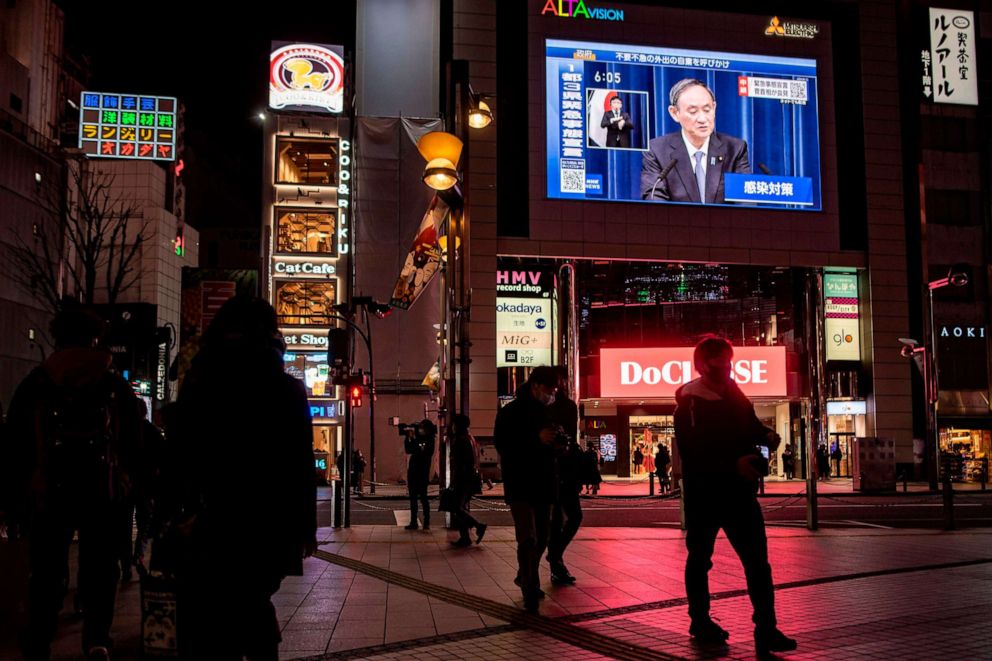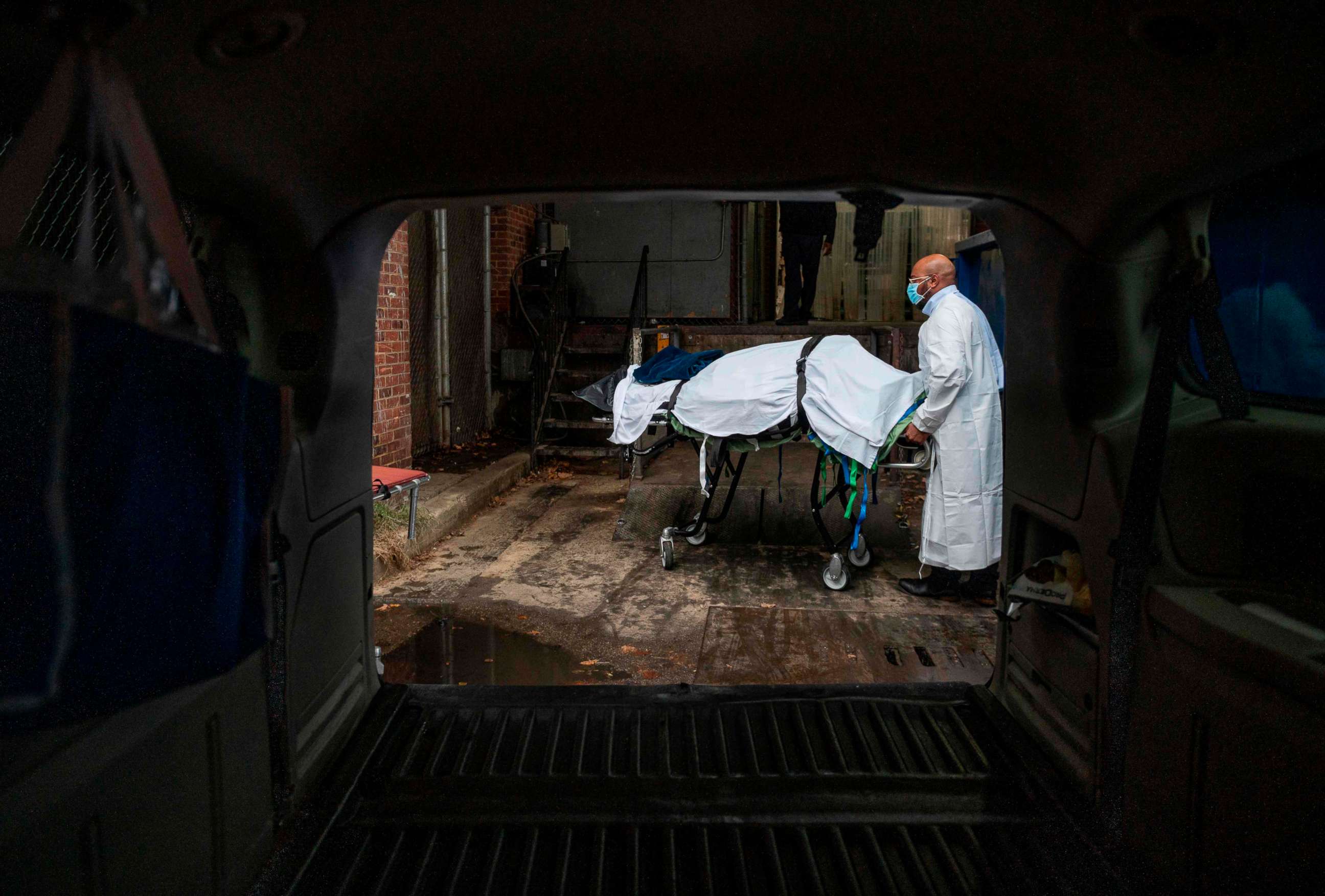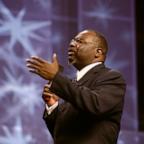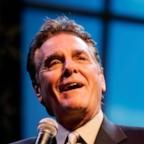Japan declares state of emergency in greater Tokyo area
Japanese Prime Minister Yoshihide Suga declared a state of emergency in Tokyo and three neighboring prefectures on Thursday, amid soaring COVID-19 infections and a growing death toll.
A state of emergency declaration gives the governors of those respective regions the authority to ask residents for cooperation in efforts to curb the spread of the virus. There are currently no legal ramifications for non-compliance.
"This global infection has surpassed our imagination and it has turned into a harsh struggle," Suga said Thursday evening in televised remarks. "However, I believe that we can overcome the situation. In order to do so, once again, we ask people to have a limited lifestyle."
Under the state of emergency, which takes immediate effect and will last for one month, Suga said governors will ask residents to refrain from dining out and to stay home after 8 p.m. unless for essential reasons. They will also ask companies to decrease the number of employees commuting to work by 70%.

Suga said bars and restaurants will be asked to stop serving alcohol by 7 p.m. and to close by 8 p.m. Governors may disclose the name of the businesses that don't comply, while those that do will be given 1.8 million Japanese yen ($17,000) per month.
Spectator events will be limited to an audience of 5,000 people. Schools will not be asked to close, according to Suga.
"If we do that, I believe we can overcome the COVID crisis," he said.
Suga's predecessor, Shinzo Abe, declared a nationwide state of emergency relatively early in the pandemic in April, which lasted for a month. At that time, residents were asked to reduce person-to-person contact by 80% and to practice "jishuku," or "self-restraint," by staying at home and closing non-essential businesses.
The move comes after days of record-high numbers of newly confirmed COVID-19 infections. The Japanese Ministry of Health, Labor and Welfare confirmed 5,946 new cases on Wednesday, bringing the country's cumulative total to 257,196 confirmed cases with at least 3,790 deaths.
ABC News' Anthony Trotter contributed to this report.





